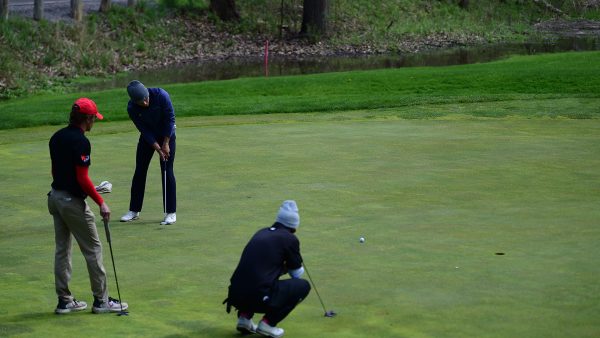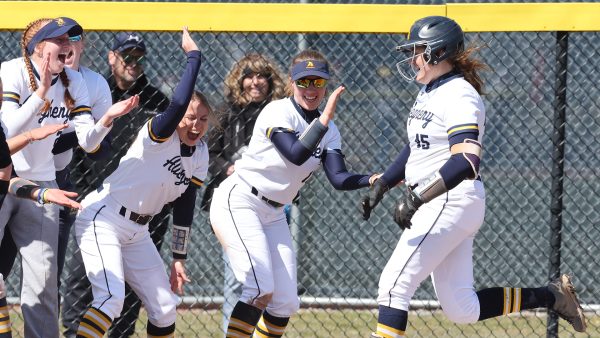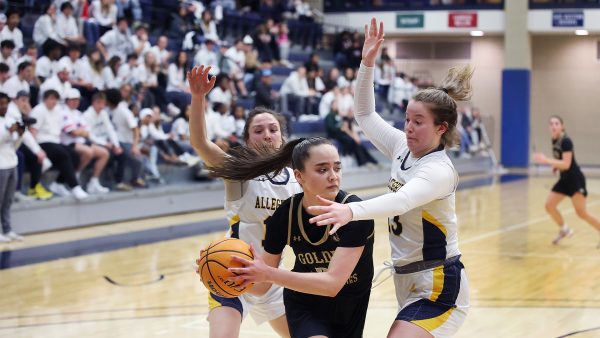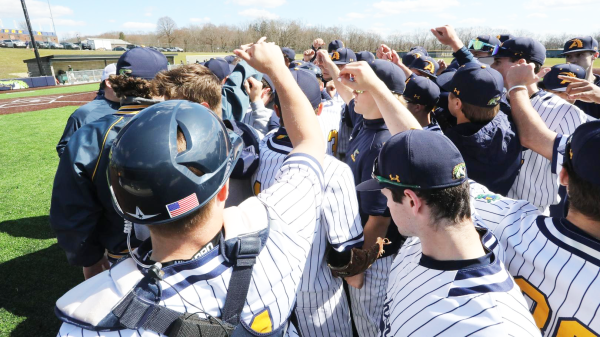Fencing club provides mental, physical challenge for Allegheny athletes
There are 13 club sports offered at Allegheny College, each bringing something unique to campus. One of the sports offered that some may not be familiar with is fencing, but the students involved would encourage more people to participate.
“It’s like sword fighting without using really heavy swords,” member Katie Kramer, ’21, said. “It’s a good way to get exercise, and it’s a good way to meet new people who are passionate about this kind of thing.”
The team competes in competitions throughout the season, where its members aim to prove their skills and see their hard work pay off. The events they are involved in are spread out across the semester, so they allow the fencers to feel more at ease, especially during the home stretch of the semester.
“We are going to competitions, but they are more spaced out and it’s not like we are officially in any type of conference or anything like that,” Kramer said. “We do have memberships, but we aren’t so focused on going to competitions Rather, we are more focused on having fun.”
The Allegheny Fencing Club is back in full force now, but there was a time when the club was nonexistent on campus, and both current and former members are more than happy to keep the spirit and excitement of the club going strong.
“We had a fencing club back in the 80s when I was a student, and for a couple years after I was a student, but when I came back on campus to start teaching in 1996, the club no longer existed,” said Tomas Nonnenmacher, professor of economics and former fencing club member.
Nonnenmacher, with the help of others, ensured the club would live on at the college, and students have continued to express interest in the sport over the years.
“In about 2000, Steven Lyons, who was a professor in the history department, wanted to get into fencing and asked me if I would co-advise the club,” Nonnenmacher said. “So from that point on, we basically started the club up again.”
Nonnenmacher emphasized the reality of many students not knowing much, if anything, about fencing when they arrive on campus and said the sport is different from others.
“It’s pretty obscure, so my best way to sell the sport to new students is that people often say it is like physical chess where it’s very athletic and it’s also very cerebral at the same time,” Nonnenmacher said. “It’s very high energy. You’re always thinking, always trying to interpret what the opponent is doing, and it’s also a sport you can play your entire life.”
Students may wonder what the benefits and rewards are of joining the fencing club here on campus. Nonnenmacher explained the list of positives he believes students can get out of being part of the club.
“For students, it’s a place where it doesn’t matter what your level of ability is,” Nonnenmacher said. “You can go and have fun and learn a new sport.”
The club also represents a way for students to become involved in their own little community. This support system is very important to members, new and old, of the fencing club.
“I think the community there is really nice because we’ve all come to know each other, so we are all super supportive of one another, and we can also learn from each other’s mistakes and teach each other to be better,” Kramer said.
The fencing club represents an opportunity for students who want to branch out and enjoy more physical activity on campus. Emily McGurgan, ’21, described what led her to decide to join the club.
“I wanted to do a more sports-like activity this year, because I didn’t do too much on that side last year, and so I went to the involvement fair and saw fencing was an option,” McGurgan said. “I wanted to do fencing when I was younger but I kind of chickened out, so I thought I might as well try it now.”
McGurgan emphasized the workout that members of the fencing team get when they compete. She cited it as a big selling point to students at Allegheny who don’t know much about fencing but are thinking about joining the club.
“If you’re looking for a workout, you definitely get that from fencing,” McGurgan said. “There’s a lot of leg work, and there’s also mental work, trying to figure out what your opponent will do, and it’s in some ways kind of like a mind game.”








